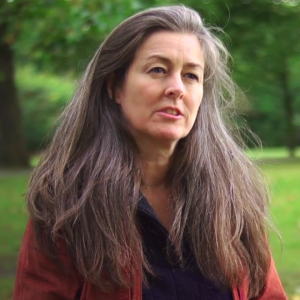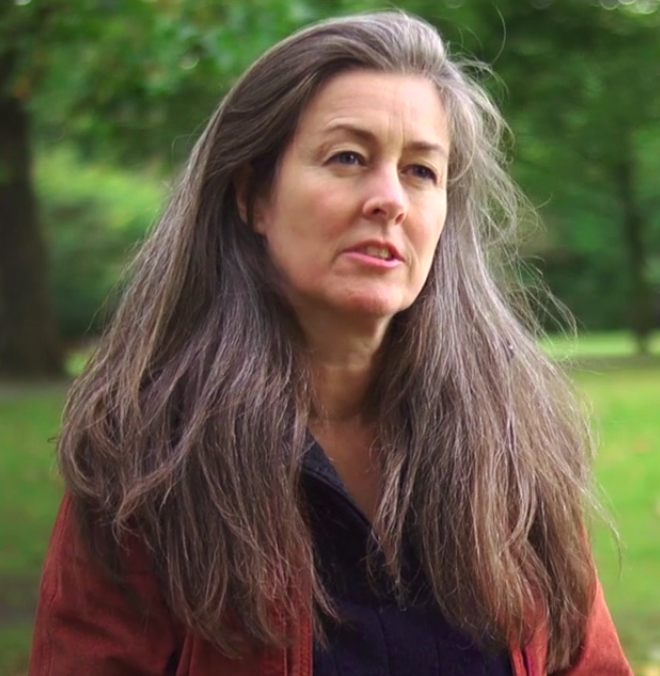
.png) Dr. Pauly Mathew Muricken
Dr. Pauly Mathew Muricken

Dr Rajendra Prasad, the President of the Constituent Assembly, while speaking on August 15, 1947, alerted the countrymen to ensure that this land would not only have enough food to feed its teeming millions, but would once again become a land flowing with rivers of milk. As time has passed, unfortunately, that cherished dream of the noble statesman has now become an unpleasant nightmare, with our land increasingly plagued by all forms of environmental degradation and ecological imbalance, resulting in catastrophic consequences. To cite a few, shifting weather patterns, rising sea levels, and impacts of climate change have become unprecedented in scale. One cannot brush aside these human concerns lightly by regarding them as global in form and appearance.
Environmental degradation can violate the human rights of indigenous and rural communities whose survival depends on a healthy ecosystem. The emission of greenhouse gases and destruction of ecosystems at current rates will have devastating consequences both socio-culturally and environmentally. It is high time to address ecocide, a structurally recurring phenomenon and the environmental catastrophe that has brought us to the crossroads.
The world did not know much about ecocide until the lawyer-visionary, Polly Higgins, appealed to the UN Law Commission to criminalise it in 2010. Thereafter, with several countries criminalising ecocide at the national level and more now seeking to follow suit, is it not the right time for India to consider similar measures to make ecocide an independent crime, as an effective way to tackle the problem that environmental damage poses?
Green Criminology
International Law revealed through the Rome Statute recognises ecocide only in a bare minimum and restrictive way, that too during war. What about the other acts resulting in irreversible damage to the environment arising as an indirect consequence of war, and outside the war?
The rules of international law prohibiting ecocide could be identified in Article 8(2)(b)(iv) of the Rome Statute, which was inserted only in 1998. It only speaks about intentional attacks caused during war with the knowledge that such attacks will cause widespread, long-term and severe damage to the natural environment. Under the Rome Statute, an ecocide-like action will be illegal only if it is known that the damage caused to the environment during war would be clearly excessive relative to the concrete and direct overall military advantage anticipated.
This provision thus establishes an incredibly high threshold, which is extremely difficult to establish. Under the given high threshold, no prosecution for ecocide has taken place in the International Criminal Court so far, and no prosecution is possible. It has not been treated as an independent international crime, even under the broadened jurisdiction of the International Criminal Court, as declared in 2016.
'Greening' the Indian Law
The Bharatiya Nyaya Sanhita, 2023, and the Bharatiya Nagarik Suraksha Sanhita, 2023, are not dedicated environmental laws. They, however, contain some inherently weak and piecemeal provisions intended to protect the environment, public health, and natural resources.
Provisions in Bharatiya Nyaya Sanhita like Section 270 on public nuisance, 279 on fouling water, 280 on making the atmosphere noxious, 293 on continuation of nuisance after injunction to discontinue, 324(1) on mischief, and of its various kinds such as injury to irrigation works, wrongfully diverting water, injury to public road, drainage, river, channel; causing obstruction to public drainage, destroying landmarks fixed by public authority are some of the prohibited conduct.
Similarly, Bharatiya Nagarik Suraksha Sanhita provisions like Section 152 that empower executive magistrates to issue conditional orders intended for removal of public nuisance, and to investigate and enforce action against nuisance including pollution that impact public health and environment, Section 163 that authorises executive magistrates to pass orders in urgent cases of nuisance and apprehended danger can also be called in aid. Section 94 confers power on a court to issue a summons to produce a document, among other things. This provision can be invoked to require persons committing environmental wrongs to produce permits, environmental reports, records, and other relevant documents. Section 170 empowers the police officer to arrest to prevent cognisable offences. Except acts such as illegal mining, tree felling, poaching, other environmental wrongs generally are non-cognisant of which Section 170 power has no application.
These provisions are not specifically tailored to address environmental protection. They can at best be regarded as complementary to the existing environmental laws. The environmental laws of our country are primarily regulatory and remedial, rather than punitive. In the given situation, neither the environmental law framework nor the criminal law regime offers specific and robust measures to address the growing modern environmental challenges arising from pollution, deforestation and other potential environmental harms and injuries. Thus, environmental protection, which lies at the heart of the Sustainable Development Goals, remains a casualty.
Criminalising Ecocide
Globally, as many as 10 countries have now specifically incorporated ecocide as an independent crime in their national legal framework. Article 374 of the Criminal Code of the Kyrgyz Republic names ecocide as a specific crime. Countries like Russia, Ukraine, Uzbekistan, Tajikistan, Moldova, Kazakhstan, Belarus and Armenia have also adopted ecocide in their penal law. Quite differently, France has brought ecocide within their Environmental Code by including within its spectrum all deliberate or reckless actions capable of causing an ecological catastrophe.
Belgium has become the first European Union nation to adopt the offence of ecocide in its penal code in 2024. The Belgian Penal Code has not only included intentional acts, but also acts arising from recklessness within the scope of ecocide. Ecocide is presently regarded as a sub-category of environmental crime, established based on the standards of intention, knowledge or recklessness.
It is high time to broaden this standard and name it as a strict liability offence established based on mere breach or 'reasonably foreseeable standard', without any reference to intention, knowledge or recklessness. Ecocide is the most heinous example of environmental crime, and its legal threshold should be fixed accordingly.
'Mother Nature,' a Living Being
'Mother Nature' is being judicially recognised as a 'living being' having the status and rights of a legal person. The integrity of the biosphere has to be respected. The Universal Declaration of the Rights of Mother Earth, 2010 (Bolivia Declaration), was a momentous proclamation at the international level, recognising Mother Earth as a living being.
A recent historic judgment by an Indian Court changed the landscape of global environmental jurisprudence by establishing an international standard for sustainable development and climate justice. In A Periyakaruppan v. Principal Secretary, Revenue Department (2022), Justice Srimathy of the Madras High Court-Madurai Bench invoked parens patriae and conferred juristic status to 'Mother Nature' by declaring that nature shall have all fundamental rights for its survival, safety, sustenance and resurgence to maintain its status and promote health and well-being. A new environmental doctrine has thereby evolved for regulating environmentally harmful projects.
'Mother Nature' needs to be preserved to ensure the human right to life. Indiscriminate destruction and loss in the ecosystem are endangering humans and other living and non-living organisms. Under the guise of sustainable development, if biodiversity and resources are destroyed, it becomes sustainable destruction. We have an obligation to hand over 'Mother Earth' in its pristine glory to the succeeding generation. This is secured by conferring juristic status and treating pollution and damage to nature as equivalent to harming, hurting and injuring a living person.
Need for a Restorative Mechanism
Law should operate as a holistic and restorative mechanism, recognising legal rights for nature. Such legal recognition will prove more effective than punitive action against bad actors. Criminal law will always require an 'intent threshold' to penalise the wrongdoer. This difficulty can be overcome through the restorative mechanism.
Article 71 of the 2008 Ecuadorian Constitution presents a novel approach. It says: "Nature, or Pacha Mama, where life is reproduced and occurs, has the right to integral respect for its existence and for the maintenance and regeneration of its life cycles, structure, functions and evolutionary processes." Article 71 thus calls on public authorities to enforce the rights of nature, such as the right for nature to be restored under Article 72, if harmed through irresponsible human measures.
Criminalisation of ecocide should be used to protect ecosystems and living beings dependent on them from willful acts of destruction. Such a paradigm shift should prioritise environmental interests and their intrinsic value, rather than human interests. After all, criminalising ecocide is all about affirming the right of all life systems to exist. The Paris Agreement of 2015 emphasises that climate measures are necessary to address climate change and global warming. For this, it is the freedom from pollution that ultimately matters.